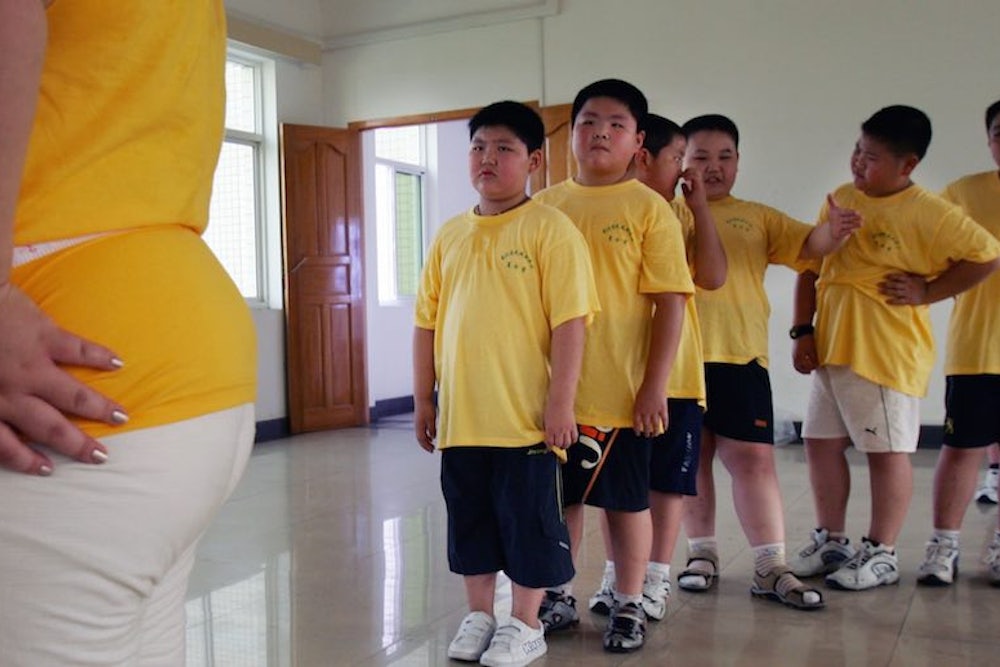In 1989, obesity researchers Jeffery Sobal and Albert Stunkard reviewed 144 studies and discovered an inverse correlation between a woman’s weight and her social and economic status in nearly all developed nations: The less a woman weighed, the higher status she enjoyed. But in poor countries—particularly those historically prone to food shortages—they found the opposite correlation: The heavier women enjoyed higher social and economic status.
A lot has changed. Even in cultures that traditionally valued heaviness, obesity has gained greater stigma while thinness has been increasingly valorized. (There hasn’t been a complete inversion: In Mauritania, for example, women are still sometimes sent to “fat farms” to be plumped up for the marriage market.)
Eileen Anderson-Fye, an anthropologist at Case Western Reserve University in Ohio, has been pioneering the cross-cultural study of fat stigma: Does it arise organically as BMIs increase, or is it a Western import? How does it vary from country to country? Her latest project aims to understand how perceptions of fat are changing in a diverse set of cultures. So far, she has teams in Jamaica, Belize, Nepal, and South Korea, and plans to launch sites in South Africa, Mexico, and Brazil next year. “In many of these locations, a voluptuous body used to mean that a woman was well-cared for, had good nutrition, access to resources, was not doing manual labor,” says Anderson-Fye, who presented her research at the annual conference of the American Anthropological Association last week. “I started to think at these strong stigmatizing beliefs around obese bodies, in places where heavier bodies used to mean health and wealth and well-being.”
In each country, Anderson-Fye recruits two groups of participants: one sample of college students drawn from a public university, and a sample of non-students, matched to the first sample by age and gender. She and her team interview their subjects to try to probe their beliefs on body standards, asking them to describe an ideal body for men and women, and the benefits of attaining such an ideal. The students were asked to indicate their level of agreement with statements like, “Obese people are as happy as non-obese people”; “Obese workers cannot be as successful as other workers”; and—maybe saddest of all—“Most people feel uncomfortable when they associate with obese people.” Her researchers also administer “implicit attitudes tests,” designed to uncover unconscious cognitive biases.
The four countries Anderson-Fye has looked at so far cover a wide range of national income level—with Korea at the top and Nepal at the bottom—as well as the rate of obesity. (It’s highest in Jamaica, followed by Belize, Nepal, and finally Korea.)
The range of countries is diverse—but their attitudes toward obese people today are pretty consistent. If you are fat, said a Jamaican, “You are unattractive and no one wants to be your friend.” “We make fun of fat people,” said a Nepali. The quotes from Koreans—the most fat-phobic culture of all—are the most devastating. “I would kill myself if I was fat,” said one Korean college student. “Fat people may as well die,” said another.
